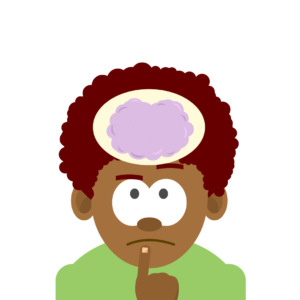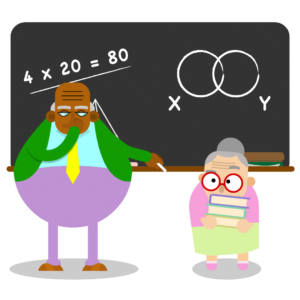The Arabic Language role in shaping a child’s identity
اللغة العربية ودورها في تشكيل هوية الطفل
The Arabic language
اللغة العربية
The Arabic language is one of the most important cultural elements that significantly contribute to shaping the identity of an Arab child. In addition to being a means of communication and expression, Arabic plays a major role in enhancing cultural belonging and deepening personal understanding of identity. We will explore how Arabic influences the shaping of a child’s identity and how parents and communities can support this process.
تُعَدّ اللغة العربية أحد أهم العناصر الثقافية التي تسهم بشكل كبير في تشكيل هوية الطفل العربي. فإلى جانب كونها وسيلة للتواصل والتعبير، تلعب اللغة العربية دورًا رئيسيًا في تعزيز الانتماء الثقافي وتعميق الفهم الشخصي للهوية. سنستعرض كيفية تأثير اللغة العربية في تشكيل هوية الطفل وكيف يمكن للأهل والمجتمعات دعم هذه العملية

• Connection with Culture and History: The Arabic language is not just a means of communication; it is an integral part of Arab culture and history. Through learning Arabic, a child gains deep knowledge of the customs, traditions, and folklore that form the fabric of their Arabic culture. This knowledge enhances the child’s sense of belonging to a particular cultural and historical group, which helps in building their personal identity.
We also have a dedicated Youtube page with a vast range of videos including jokes! check them our here!
-
- الارتباط بالثقافة والتاريخ
اللغة العربية ليست مجرد وسيلة للتواصل، بل هي جزء لا يتجزأ من الثقافة والتاريخ العربي. من خلال تعلم اللغة العربية، يكتسب الطفل معرفة عميقة بالعادات والتقاليد والقصص الشعبية التي تشكل نسيج الثقافة العربية لديه. هذه المعرفة تُعزز شعور الطفل بالانتماء إلى مجموعة ثقافية وتاريخية معينة، مما يساعد في بناء هويته الشخصية
• Enhancing Values and Principles: The Arabic language teaches children the values and moral principles that form the cultural and social foundations of Arab society. Through religious stories and Arabic literature, children learn about concepts of honesty, integrity, respect, and teamwork, which contribute to shaping their character and guiding their behavior in the present and future.
if you enjoyed this please read the next one in GlishArabic education series and learn 5 ways to make arabic vocabulary cool in Arabic!
- تعزيز القيم والمبادئ
تُعَلم اللغة العربية الأطفال القيم والمبادئ الأخلاقية التي تشكل الأسس الثقافية والاجتماعية للمجتمع العربي. من خلال القصص الدينية والأدب العربي، يتعرف الأطفال على مفاهيم الصدق، والأمانة، والاحترام، والعمل الجماعي، مما يساهم في تشكيل شخصيتهم وتوجيه سلوكهم في الحاضر و المستقبل


Communication with Family Roots: Mastering the Arabic language enables children to communicate effectively with family members who speak Arabic, strengthening family ties. This communication helps enhance the child’s understanding of family stories and ancestors’ experiences, deepening their connection to their cultural roots.
- التواصل مع الجذور الأسرية
إتقان اللغة العربية يمكّن الأطفال من التواصل بفعالية مع أفراد العائلة الذين يتحدثون العربية، مما يعزز الروابط الأسرية. هذا التواصل يسهم في تعزيز فهم الطفل لقصص العائلة وتجارب الأجداد، مما يعمق ارتباطه بجذوره الثقافية
Strategies to Support the Use of Arabic in Shaping a Child’s Identity:
- Encouraging Reading and Writing: Reading and writing in Arabic greatly contribute to developing language skills and enhancing cultural understanding. Parents can encourage their children to read Arabic books, teach them the Arabic alphabet, listen to stories, and write texts and letters in Arabic, which enhances their ability to express themselves and understand their Arab identity.
- استراتيجيات لدعم استخدام اللغة العربية في تكوين هوية الطفل
- تشجيع القراءة والكتابة
القراءة والكتابة باللغة العربية تساهم بشكل كبير في تطوير مهارات اللغة وتعزيز الفهم الثقافي. يمكن للأهل أن يشجعوا أطفالهم على قراءة الكتب العربية و تعليمهم الحروف العربية، والاستماع إلى القصص، وكتابة النصوص و الحروف باللغة العربية، مما يُعزز من قدرتهم على التعبير عن أنفسهم وفهم هويتهم العربية


- Cultural and Educational Activities: Organizing cultural activities, such as musical concerts, art exhibitions, and workshops, can enhance the use of Arabic and introduce children to cultural heritage. These activities help children interact with Arab culture in a fun and educational way.
- Interaction with Arab Communities: Interacting with Arab communities, whether at home or abroad, helps children enhance their use of Arabic and understand their culture. Participation in social events and cultural celebrations enhances children’s sense of belonging and their unique Arab identity.
- الأنشطة الثقافية والتعلمية
يمكن تنظيم أنشطة ثقافية، مثل الحفلات الموسيقية، والمعارض الفنية، وورش العمل التي تُعزز من استخدام اللغة العربية وتعريف الأطفال بالتراث الثقافي. هذه الأنشطة تُساعد الأطفال على التفاعل مع الثقافة العربية بشكل ممتع وتعليمي
- التفاعل مع المجتمعات العربية
التفاعل مع المجتمعات العربية سواء في داخل الوطن أو في الخارج، يساعد الأطفال على تعزيز استخدامهم للغة العربية وفهمهم لثقافتهم. المشاركة في المناسبات الاجتماعية والاحتفالات الثقافية تُعزز من شعور الأطفال بالانتماء والهوية العربية الخاصة بهم
Use of Technology: In the digital age, educational applications and digital content in Arabic can be used to enhance language learning. Interactive educational apps, language games, and educational videos are effective ways to attract children’s interest and teach them the language in a fun way. The GlishArabic app has successfully taught millions of children Arabic using smart education of the Arabic alphabet.
- استخدام التكنولوجيا
في العصر الرقمي، يمكن استخدام التطبيقات التعليمية والمحتويات الرقمية باللغة العربية لتعزيز تعلم اللغة. التطبيقات التعليمية التفاعلية، والألعاب اللغوية، والفيديوهات التثقيفية تُعتبر وسائل فعالة لجذب اهتمام الأطفال وتعليمهم اللغة بطريقة ممتعة و تطبيق جلشعربي نجح في تعلم ملايين الأطفال اللغة العربية بأستخدام التعليم الذكي للأحرف العربية

The Arabic language plays a vital role in shaping a child’s identity by providing a platform for communication with culture and history and enhancing values and principles. By encouraging children to use Arabic in various fields and activities, parents and communities can significantly contribute to building their cultural identity and strengthening their connection to their roots. By investing in Arabic language education and enhancing its use, we can ensure that Arab cultural heritage remains alive and thriving for future generations.
تلعب اللغة العربية دورًا حيويًا في تشكيل هوية الطفل من خلال توفير منصة للتواصل مع الثقافة والتاريخ وتعزيز القيم والمبادئ. من خلال تشجيع الأطفال على استخدام اللغة العربية في مختلف المجالات والأنشطة، يمكن للأهل والمجتمعات أن يسهموا بشكل كبير في بناء هويتهم الثقافية وتعزيز ارتباطهم بجذورهم. بالاستثمار في تعليم اللغة العربية وتعزيز استخدامها، يمكن أن نضمن أن يظل التراث الثقافي العربي حيًا ومزدهرًا في الأجيال القادمة





